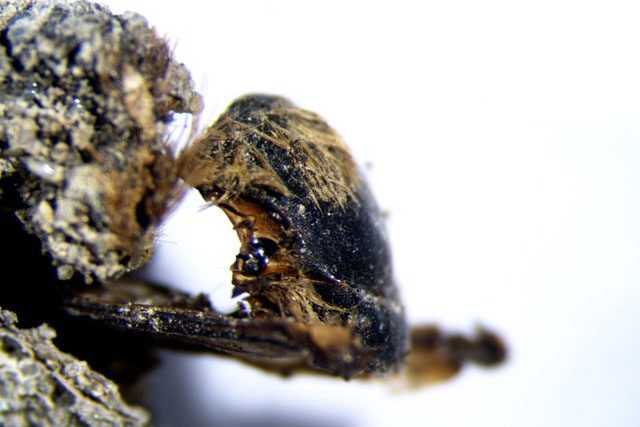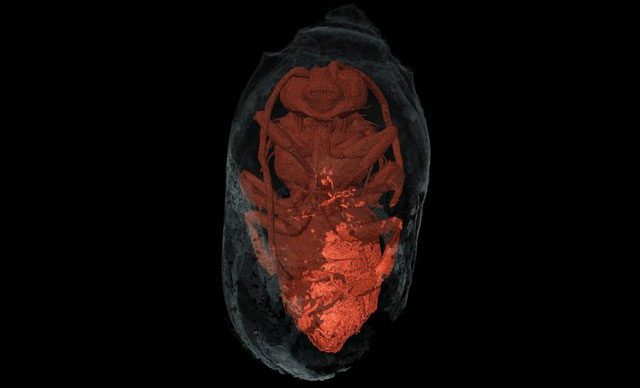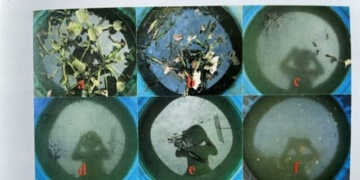Hundreds of bee cocoons have been discovered at a newly unearthed archaeological site along the coast of Odemira, Portugal, according to a report published in the journal Papers in Paleontology.

Bee cocoons found at the newly discovered archaeological site on the coast of Portugal. (Photo: ICTP)
After a period of collaborative research, a team comprising several universities from Portugal, Spain, and Italy identified the mummified bees to be approximately 2,975 years old. During that time, Pharaoh Siamun ruled Lower Egypt, China was under the Zhou dynasty, and King Solomon was preparing to ascend the throne of the Jewish people from King David.
In what is now Portugal, tribes were nearing the end of the Iron Age, and it is also where hundreds of cocoons were found, still containing perfectly preserved bees inside.
Somehow, the bees, which had not yet emerged from their cocoons, perished en masse. The cause behind the mummification of the bees remains unclear, as the entire body of the bees was remarkably preserved, contrasting with the usual process where bees decompose rapidly after death.

Bees perfectly preserved inside cocoons. (Photo: ICTP).
“The level of preservation of the bees in this case is so exceptional that we not only collected anatomical details to identify the species of the bees, but also their gender and even the source of the pollen inside the queen bee’s body when the cocoon was created,” stated researcher Carlos Neto de Carvalho from the University of Lisbon, Portugal.
Researchers discovered the bee cocoons covering an area of one square meter at the recently found archaeological site on the coast of Portugal.
Regarding the rarity of this discovery, co-author of the report, expert Andrea Baucon from the University of Siena, Italy, noted that in the past, scientists have found many fossilized bee cocoons, some dating back about 100 million years.
However, it is only now that they have discovered cocoons in a condition where the bees inside are well-preserved, as seen in Portugal.


















































